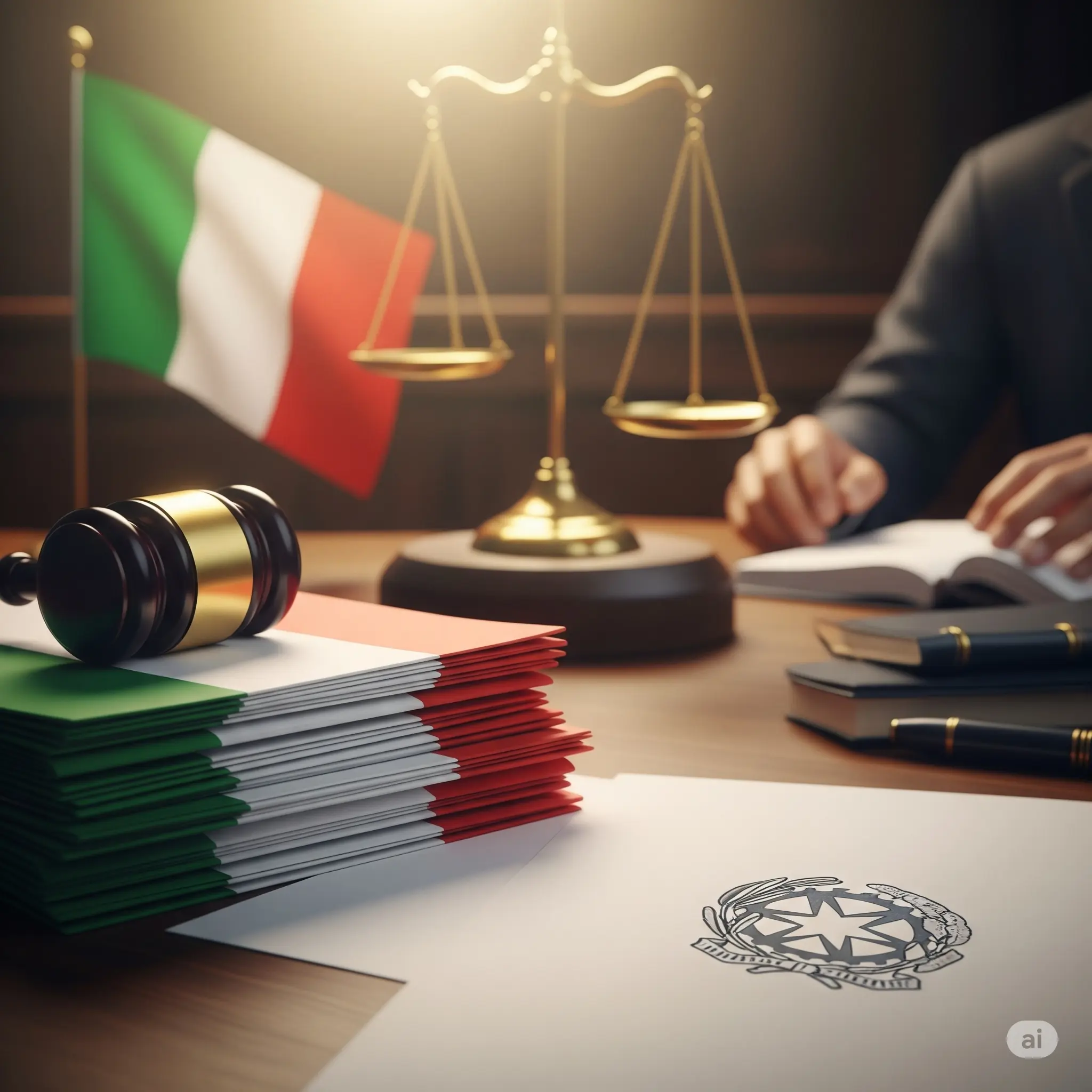The Specialized Section for Immigration, International Protection, and Free Movement of EU Citizens at the Tribunal of Turin has expressed serious doubts regarding the constitutionality of the recent Italian law concerning the recognition of Italian citizenship jure sanguinis (by blood) (read our related article). This significant development arose from a case involving descendants seeking recognition of their Italian citizenship filed March 28 2025.
The Case: Descendants Seek Recognition
The legal proceedings were initiated by a group of applicants, all direct descendants of an Italian citizen who emigrated to Venezuela. They filed their claim March 28, 2025.
The core of their claim rested on the principle that their ancestor never naturalized as a Venezuelan citizen, thus maintaining their Italian heritage. The applicants petitioned the court to declare their status as Italian citizens and to compel the Ministry of Interior (the defaulting defendant) and the relevant Civil Status Officer to register their citizenship in public records. The Public Prosecutor, a necessary party in such proceedings, did not object to the applicants’ request.
A New Law Casts a Shadow: Decree-Law No. 36/2025
The proceedings took a pivotal turn with the introduction of Decree-Law No. 36/2025, which significantly amended Law No. 91/1992 on citizenship. Specifically, it introduced Article 3-bis, a provision stating that individuals born abroad who also possess another citizenship are considered as never having acquired Italian citizenship. This new rule includes retroactive effect, applying to cases not already pending by March 27, 2025.
Under the previous legal framework, the applicants’ claim though Italin ancestry would have been straightforward. Despite the presence of a female ancestor in their lineage who married a foreigner and had children before the 1948 Constitution (a historical hurdle for jure sanguinis claims), the court noted that the documentation provided, including a certificate proving the ancestor’s non-naturalization in Venezuela, satisfied the evidentiary requirements.
However, the new Article 3-bis imposes stricter conditions. Since the applicants were born in Venezuela (a country that permits dual citizenship) and their judicial application was filed after the March 27, 2025 deadline, they fall under the restrictive scope of the new law. Critically, their ancestors did not exclusively hold Italian citizenship, nor did they reside in Italy for two continuous years prior to the birth of their children, which are among the few exceptions provided by the new legislation.
Constitutional Challenge: A Conflict of Principles?
The applicants swiftly challenged the constitutionality of Article 3-bis, arguing that it violates several fundamental articles of the Italian Constitution, including:
- Article 3: Principle of equality.
- Article 22: Prohibition of arbitrary deprivation of citizenship.
- Article 77: Rules governing decree-laws.
- Article 117, paragraph 15.1: Adherence to international obligations.
The court found this challenge admissible aldo due to its direct impact on European Union citizenship. Italian citizenship automatically confers EU citizenship (as per Article 9 TUE and Article 20 TFEU). The court noted that the new law, by potentially causing individuals to lose their Italian citizenship, directly affects their status and rights as EU citizens, thus falling within the scope of EU law.
The Tribunal referred to a key Court of Justice of the European Union (CJEU) ruling (September 5, 2023, C-689/21, X v. Udlændinge- og Integrationsministeriet). In that case, concerning a Danish law that caused citizens born abroad to lose citizenship at age 22 if they lacked a genuine link to Denmark, the CJEU affirmed that such situations directly concern EU law. The CJEU explicitly stated that “Member States must respect EU law and, in particular, the principle of proportionality” when exercising their competence over citizenship matters.
Specifically, the CJEU emphasized that an ipso iure (by law itself) loss of a Member State’s citizenship would be incompatible with the principle of proportionality if national rules didn’t allow for an individual examination of the consequences of such loss under EU law. The CJEU jurisprudence also requires that the State must guarantee the possibility to request the preservation or ex tunc (from the beginning) recovery of citizenship within reasonable time limits, which can only start after the individual has been specifically warned of the impending loss and given the chance to act.
Violation of International Human Rights Law
Beyond the constitutional and EU law concerns, the Turin Tribunal also identified a potential violation of Article 117, paragraph 1 of the Italian Constitution in conjunction with Article 15, paragraph 2 of the Universal Declaration of Human Rights (UDHR).
Article 15, paragraph 2 of the UDHR states that “no one shall be arbitrarily deprived of his nationality nor denied the right to change his nationality.” The court argues that the new law introduces arbitrary criteria for “implicit revocation” of Italian citizenship. Specifically, the provisions of Article 1, paragraph 1, letters a) and b) of Decree-Law No. 36/2025 retroactively invalidate the right to assert one’s original Italian citizenship jure sanguinis if a claim (administrative or judicial) was not filed by 11:59 PM on the day before the decree-law came into force.
This retroactive “revocation” mechanism is deemed arbitrary because it essentially removes a pre-existing right without a clear, non-arbitrary justification or transitional period, thereby potentially violating a fundamental international human right.
The Court’s Analysis: Acquired Right vs. Expectation
The Tribunal of Turin’s central task was to determine whether Article 3-bis impacts a right to citizenship already acquired by the applicants or merely a mere expectation of recognition. The court delved into the “living law” established by the Italian Supreme Court (Corte di Cassazione a Sezioni Unite), which consistently affirms that citizenship is an essential, inherent, inalienable, and imprescriptible quality of a person, acquired at birth. The recognition of this status, whether through administrative or judicial means, is merely declarative, confirming an existing right rather than creating a new one.
The Tribunal ultimately concluded that, under the legal regime preceding Decree-Law No. 36/2025, individuals born abroad to an Italian ancestor were already Italian citizens from birth. The new law, therefore, does not just alter a procedural aspect; it effectively introduces an “implicit and retroactive revocation” of citizenship. This means it targets individuals who, by established legal precedent, were already considered Italian citizens.
Serious Doubts and Future Implications
Given this interpretation, the Turin Tribunal declared it holds serious doubts about the compatibility of Article 3-bis with fundamental constitutional principles, and referred the matter to the Constitutional Court,
The outcome of this constitutional review could have far-reaching implications for thousands of individuals worldwide seeking to have their Italian citizenship jure sanguinis recognized.
July 1st, 2025





